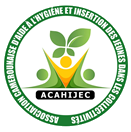Children participation

The participation of children is a prerequisite for the success of the "Water, Sanitation and Hygiene Education" initiative in schools. In this process, a new actor comes into play; it is a hygiene and cleanliness professional known as an educator. In general, primary and secondary school teachers have been trained in traditional pedagogical approaches, which leave little room for active student participation. Although directive teaching has its place, children appreciate and benefit more from more participatory teaching methods. These methods promote active participation of children in the learning process and allow them to learn from their actions and classmates.
The implementation of adapted hygiene practices is greatly facilitated if children are allowed to actively participate. So, thanks to peer educators, children :
Learn and adopt new concepts and skills faster;
Gain useful knowledge by participating in environmental activities;
Are a source of creativity, energy, initiative, dynamism and social renewal;
Make an important contribution to the rehabilitation and protection of the environment within their communities;
Are ardent advocates of the cause and spread messages to their family and community in favor of a healthy lifestyle.
In this context, the participation of children can be done in two ways :
Through the use by teachers of participatory teaching methods or through specialized trainers in hygiene, during school hours and as part of the school curriculum (which is usually a more sustainable approach);
Through youth hygiene clubs within and outside the school. These clubs are not part of the school curriculum, depend more on the motivation and enthusiasm of individuals and are therefore less sustainable.
Youth Hygiene clubs are a way for students to get actively involved in advocating for a healthy and hygienic school and community. In the clubs, children learn good hygiene practices and can train to become peer educators themselves within the school. Clubs also allow teachers to conduct experiments without the constraints of a classroom. They can take young people into the community and have them work in small groups.
Links with communities: Mobilizing parents and the community
Parents and the community can play an important role in helping to keep the school clean, safe and healthy and in encouraging children to improve their hygiene practices.
Local committees, parents and communities can play the following roles :
Key partners during implementation planning. In many cases, parents and community members represent unskilled labor and provide local materials for the construction of schools. Involving them in planning helps to generate a sense of ownership on the part of parents and community members. They can then take decisions or make arrangements for the school toilets to be built according to the standards defined in this area. To promote everyone's commitment and consensus, the local committee must present its conclusions and decisions to the entire community.
Financial controllers and fund holders. In the event that a contribution from parents is necessary to cover the costs of maintenance, cleaning staff, the purchase of soap and cleaning equipment, parents can manage the funds through the association of parents of students, in order to overcome their possible distrust of paying money to the school.
Supervisors of operation and maintenance. In most communities, a Council is responsible for the operation and management of water systems and sometimes communal toilets. Involving the latter from the beginning of the project allows him to integrate the care of the school into his load plan. A specific staff can be entrusted with cleaning the toilets.
Community monitoring officers. The community and the school have a vested interest in monitoring the toilets.
They quickly identify and report any necessary repairs and can motivate the users of the installation by presenting them with the positive effects of the interventions, measured by means of objective criteria.
Conclusion
At the end of this study, the toilets at school are not only used for the pee break. It is one of the nerve centers of the school. Poorly maintained, they create spaces of insecurity, where deviances of all kinds develop. Well maintained, they not only preserve the health of the learners against diseases related to the fecal hazard, but also, they make the school a safe place where the child can move safely.
The implementation of the initiative "Water, Sanitation and Hygiene Education" is the mandatory way to maintain the cleanliness of places of ease at school.
The use of sanitation, hygiene and cleanliness professionals would thus allow school administrations to focus only on educational aspects for a better academic result in a healthy environment.


